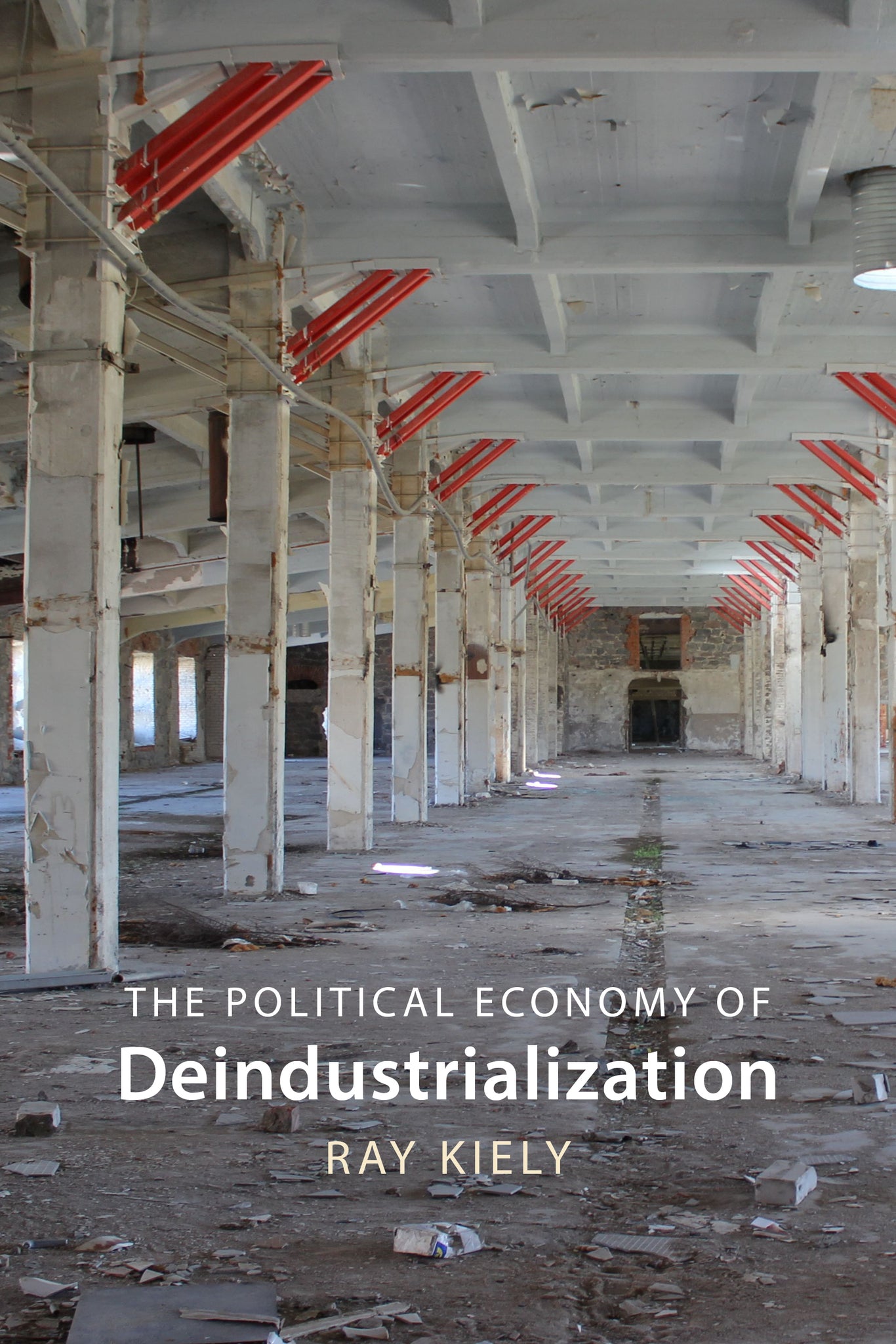We're sorry. An error has occurred
Please cancel or retry.
The Political Economy of Deindustrialization

Some error occured while loading the Quick View. Please close the Quick View and try reloading the page.
Couldn't load pickup availability
- Format:
-
29 August 2024

It is often assumed that deindustrialization is a bad thing, confined to the Global North, and caused by cheap imports from the Global South. Although not entirely incorrect, the truth is far more complicated. Ray Kiely argues that the current economic debate assumes too much in terms of causality around deindustrialization, which is better seen as a product of wider changes in contemporary global capitalism. Yet, evidence of a zero-sum game doesn't have to be very strong for this to have become an issue of deep politics, informing right-wing populism and contemporary geopolitical tensions (namely with China). A clearer understanding of the processes of deindustrialization can help in appreciating the political responses and movements across the Global North – and South – and enable us to find better responses to the processes themselves.

POLITICAL SCIENCE / Public Policy / Economic Policy, Political economy, BUSINESS & ECONOMICS / Industries / General, BUSINESS & ECONOMICS / Industries / Manufacturing, BUSINESS & ECONOMICS / Economics / General, BUSINESS & ECONOMICS / Industries / Service, BUSINESS & ECONOMICS / International / General, Industry and industrial studies, Manufacturing industries, Service sector economics, International trade and commerce

Deindustrialization is a key economic problem in today’s world; it has been blamed for a wide range of ills, from slow economic growth to the rise of the so-called ‘populist right’. This book offers a comprehensive, informative, clear, balanced and uniquely insightful examination of this global phenomenon in all its complexity, located within the uneven and combined development of global capitalism, and outlines the possible alternatives. Essential reading.
1. Introduction
Part I Explaining deindustrialization
2. Explanation 1: what is it and why it might (not) matter
3. Explanation 2: deindustrialization as a product of relocation and import competition
4. Explanation 3: deindustrialization as a product of technological change (and why automation’s significance is real but exaggerated)
Part II Deindustrialization and its wider context
5. Deindustrialization and its wider context 1: contemporary capitalism – long downturn or uneven and unequal expansion?
6. Deindustrialization and its wider context 2: the question of geopolitics
7. Deindustrialization and its wider context 3: the question of populism
8. Deindustrialization and its wider context 4: further political alternatives
9. Conclusion



